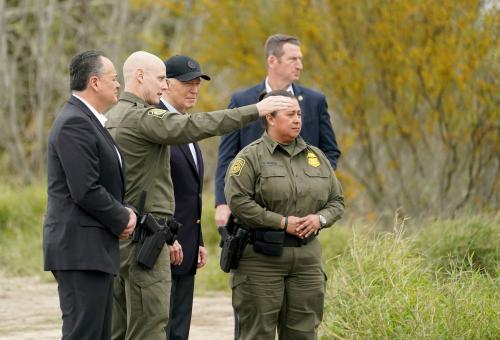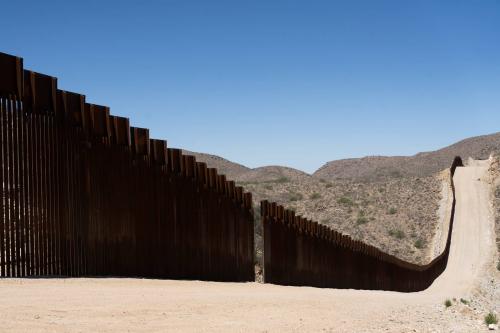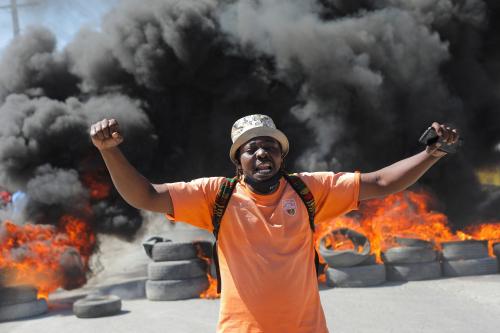Editors’ Note: Last week’s U.N. Special Session on the world drug problem is unlikely to overturn the existing international drug policy paradigm, argues Arturo Sarukhan, in large part because of the contradictions between U.S. domestic policy on marijuana and its international policy, and because of new drug warriors in Asia and Africa. This post is adapted from an op-ed published in Mexico’s
El Universal
.
At a first glimpse, recent events would suggest that there is a coming armistice in the ill-advisedly named “war on drugs.” In the United States, more than half of Americans polled support the legalization of cannabis; four states and the District of Columbia have already done so, and 24 others authorize the use of medicinal marijuana. Several European countries have also experimented with decriminalization, regulation, or legalization of illicit drugs. And in Latin America, one of the main battlefronts of drug prohibition, winds of change are blowing. Marijuana has been legalized in Uruguay, and countries like Colombia and Mexico are engaged in widespread and meaningful debates on how to address their drug-related challenges.
In this context, the United Nations General Assembly Special Session on the world drug problem (UNGASS)—which was held two years earlier than initially planned at the request of Colombia, Guatemala, and Mexico in 2012—represents a historic opportunity to rethink the way the international community has been confronting this scourge to human security, well-being, and rule of law.
UNGASS…represents a historic opportunity to rethink the way the international community has been confronting this scourge to human security, well-being, and rule of law.
UNGASS comes at a time when the international drug policy paradigm is increasingly questioned, in light of the severe consequences now apparent from the drug control regime that has been in place for decades. The costs—measured in terms of prison population and social dislocation; the strain on health systems, institutions, and law enforcement; and threats to public safety and national and international security—are overwhelming. No public policy in the world over the past four decades has proven to be such a dismal failure as the prohibition of drugs, particularly marijuana.
But to think that UNGASS will lead to a major turning point in international drug policy is like smoking too much of some of the substances currently being seized.
First, there is a contradiction in the United States between domestic policy (which is de facto allowing drug policy decisions to be made by states) and its international position, which includes eradication, interdiction, and continued criminalization of drugs as its pillars. Washington cannot keep expecting other countries to put in the resources, let alone the blood, sweat, and tears to deter production and transshipments of drugs, while allowing marijuana legalization to continue to proceed domestically. For decades, the central premise of the international drug control regime—as imposed by the United States both in multilateral and bilateral forums—postulated that cutting the production and trafficking of drugs would affect prices and consumption. You don’t need to be an Economics Nobel Prize winner to understand that if drug demand is completely inelastic and supply is completely elastic, attacking supply will only create incentives for new players to enter into the market—particularly in trafficking and distribution, where the margins of profit are the highest. Comprehending these dynamics when he was about to assume office in 2009, President Obama supported his Mexican counterpart’s proposal to conduct a blue skies, out-of-the-box review of how Mexico and the United States were fighting drugs. Unfortunately, bureaucratic agendas and resistance in the United States torpedoed the agreement, and it gained no further traction.
Second, as some countries have lost their appetite to fight illicit substances, other drug warriors have emerged. Russia and China, in particular—as well as several countries in Africa and Asia—have adopted orthodox and hardline positions and refuse to budge in reassessing international conventions in illicit drugs and drug control policy. Fifteen years ago, the United States and Europe provided the bulk of the resources for the United Nations Office on Drugs and Crime; today they only contribute about 60 percent, with emerging economies putting up the remaining portion.
[C]annabis legalization alone wouldn’t end Mexico’s security problems or get at the root of organized crime; it’s not a silver bullet.
It’s unlikely that UNGASS will remedy past mistakes in drug policy, or that we will see a thorough review of how best to confront transnational criminal organizations involved in drug trafficking, for instance. Nonetheless, for Mexico, a continued impasse at the multilateral level might provide valuable time for an important discussion and thoughtful analysis going forward. It is certainly likely that legalizing marijuana in Mexico would cut income from cannabis production and trafficking. That would thereby weaken organized criminal groups and, by extension, mitigate violence at the retail level plaguing some urban spaces. The recent decision by the Mexican government to allow for the medical use of cannabis and a threshold for personal use is a good first step. But cannabis legalization alone wouldn’t end Mexico’s security problems or get at the root of organized crime; it’s not a silver bullet. The central problem Mexico faces is the endemic weakness of the rule of law, impunity, and a breakdown in the social contract. All of these facets, and more strenuous efforts to mitigate harm and combat money laundering, for example, must be strengthened in parallel with legalization. Otherwise, we will only continue to play whack-a-mole; illicit criminal activity will only be displaced, from drug trafficking to human trafficking and extortion, and from cannabis to opium and heroin, as is currently the case in Mexico.



Commentary
Hamster in a wheel: Will the U.N. special session on drugs actually change anything?
April 26, 2016